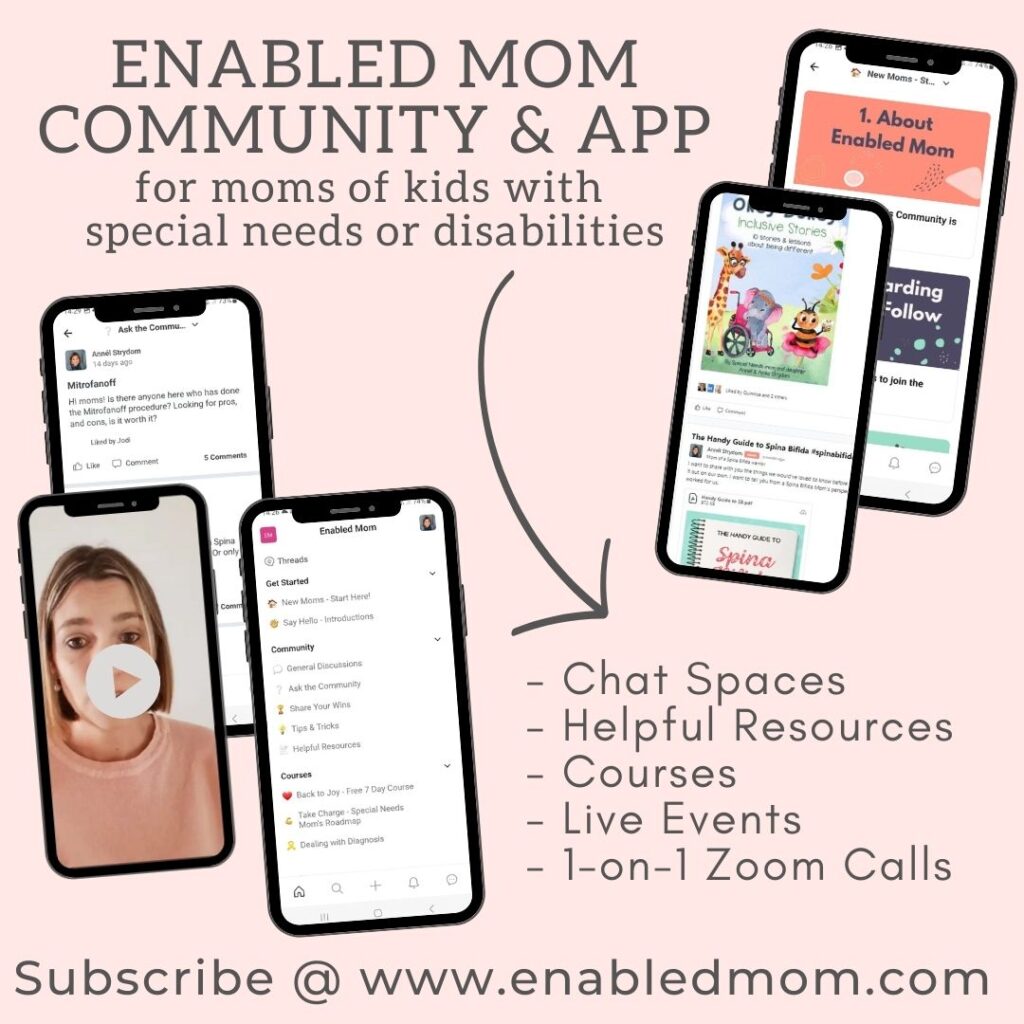Nurturing Wound Healing: A Guide for Moms of Kids with Spina Bifida
Parenting is a rewarding journey filled with joy and challenges. For moms of children with disabilities, particularly those with spina bifida, the path may be strewn with wounds, as the condition often leads to surgeries, impaired sensation in the legs and feet, and slower wound healing due to compromised blood circulation.
In this blog post, we’ll delve into the importance of higher protein intake and extra vitamins in speeding up wound healing for your child (with or without Spina Bifida, as we know ALL kids gets wounds at some stage).
The Healing Struggle: Wound Care for Kids with Spina Bifida
Children with spina bifida often undergo multiple surgeries throughout their lives to address spinal cord and nerve issues, as well as orthopedic concerns. These surgeries can result in wounds that require careful attention and nurturing for optimal healing. Additionally, the diminished sensation in the legs and feet can lead to unnoticed injuries, further complicating wound management. The impaired blood circulation in the affected areas slows down the body’s natural healing process, underscoring the need for strategic interventions.
The Power of Protein: Building Blocks of Healing
Protein is a fundamental nutrient crucial for wound healing. It plays a vital role in building and repairing tissues, supporting the immune system, and promoting the formation of new blood vessels. For kids with spina bifida, who face challenges related to circulation and wound healing, ensuring an adequate intake of protein becomes even more essential.
Including protein-rich foods in your child’s diet can provide the necessary amino acids for cellular repair and regeneration. Sources of high-quality protein include lean meats, poultry, fish, eggs, dairy products, protein shakes, legumes, and plant-based options like tofu and quinoa. Collaborating with a registered dietitian can help you design a well-balanced meal plan tailored to your child’s individual needs and preferences.
Vitamins: Catalysts for Healing
Vitamins are key players in wound healing, assisting in collagen production, immune function, and tissue repair. In the context of spina bifida and its associated challenges, certain vitamins can provide a boost to the healing process.
- Vitamin C: This powerful antioxidant is essential for collagen synthesis, a crucial component of wound healing. Citrus fruits, strawberries, kiwi, and bell peppers are rich sources of vitamin C that can be easily incorporated into your child’s diet.
- Vitamin A: Known for its role in skin health and immunity, vitamin A supports wound healing by promoting cell growth and differentiation. Include sweet potatoes, carrots, spinach, and fortified dairy products to boost your child’s vitamin A intake.
- Vitamin E: As another potent antioxidant, vitamin E helps protect cells from damage and supports the immune system. Nuts, seeds, and vegetable oils are excellent sources of this vitamin.
- Vitamin K: Essential for blood clotting and bone health, vitamin K contributes to wound healing by aiding in proper blood vessel formation. Green leafy vegetables like kale, spinach, and broccoli are rich in vitamin K.
Consulting the Experts
As you embark on this healing journey with your child, remember that every child’s needs are unique. Collaborate with your child’s healthcare team, which may include pediatricians, dietitians, and wound care specialists. They can guide you in tailoring a comprehensive plan that considers your child’s nutritional requirements, medical history, and any existing dietary restrictions.
Some healthcare workers may suggest vitamin or protein supplements, others will up the intake through diet only.
By prioritizing higher protein intake and incorporating vitamins that support wound healing, you’re taking proactive steps to promote your child’s overall well-being!




